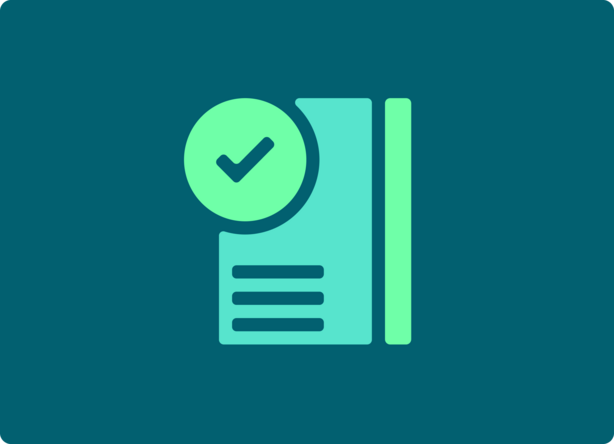Top Tips for Sole Traders with One Customer

Navigating HMRC compliance as a sole trader can be challenging, more so when you have only one customer. While it may sound straightforward, you must follow specific rules and regulations to avoid any potential pitfalls. From maintaining proper records to understanding your tax obligations, ensuring compliance requires diligence and understanding. In this article, we'll explore crucial tips that can help you stay compliant with HMRC as a sole trader with a single client.
Let's delve into useful practices such as effective record-keeping, understanding allowable expenses, and timely tax return submissions. With the help of the Pie Tax App and our team of expert tax assistants, you can make this often daunting task much more manageable.
Maintain Accurate Records
Keeping precise records is vital for HMRC compliance. As a sole trader, ensure that you document every transaction you make, including expenses and income. This not only helps you at tax time but also provides a clear picture of your financial health.


Understand Tax Deadlines
Meeting tax deadlines is crucial to avoid penalties. HMRC expects timely submissions of your Self-Assessment tax return by the 31st of January each year. Set reminders and use digital tools to ensure you never miss a deadline.

80% of sole traders often overlook allowable expenses. Familiarise yourself with categories like travel, office supplies, and client entertainment to reduce your tax bill significantly.Key Expense Categories

If your annual turnover exceeds £85,000, you must register for VAT. This not only affects your pricing but also adds complexity to your accounting obligations. Be sure to monitor your income regularly.Income Thresholds

Recognise Allowable Expenses
Recognising allowable expenses is fundamental to reducing your tax liabilities. Expenses like office supplies, travel costs, and even part of your household bills (if you work from home) can be claimed. However, remember to save all receipts and invoices as HMRC may request evidence during an audit.
Understanding the scope of what you can claim ensures you legitimately reduce your tax bill, helping you reinvest in your business. It's also an area where the expert tax assistants available on the Pie app can provide valuable guidance.
Handle HMRC Inquiries
If HMRC raises a query about your tax return, respond promptly and accurately. Ignoring an inquiry or providing incomplete information can result in severe penalties. Your primary goal should be to supply the requested documents and information as quickly as possible.
The Pie Tax App simplifies this process by allowing you to keep all your financial documents in one place, which can be easily accessed when required. Not to mention, the expert tax assistants available on the Pie app are there to offer advice and support, reducing your stress and ensuring compliance.

Top Tips for Sole Traders with One Customer

Keep comprehensive records of all transactions, contracts, and communications with your sole customer. Accurate documentation ensures transparency and simplifies tax reporting to HMRC.Maintain Detailed Records

Familiarise yourself with IR35 rules to determine if your working arrangement is genuinely self-employed. Misclassification can lead to significant tax liabilities and penalties.Understand IR35 Legislation

Use a dedicated business bank account to separate your business income and expenses from personal finances. This practice simplifies accounting and demonstrates compliance.Separate Business and Personal Finances

Fun Fact About Taxes
Did you know? The idea of taxation dates back to ancient Egypt, around 3000 BC, where labour and produce were taxed
Understanding IR35 Legislation and Ensuring Compliance

IR35 legislation, introduced by HMRC, aims to identify "disguised employees" who work as contractors through their own limited companies but would otherwise be considered employees if the intermediary was not used. The legislation ensures that these individuals pay similar taxes to regular employees. IR35 rules apply to all sectors, and non-compliance can result in substantial tax liabilities and penalties. It's crucial for contractors to understand their status under IR35 to avoid unexpected financial consequences.
To remain compliant with IR35, it is essential to accurately assess your employment status for each contract. Factors such as the level of control your client has over your work, your ability to provide a substitute, and the mutuality of obligation should be considered. Use HMRC’s Check Employment Status for Tax (CEST) tool to evaluate your status. Additionally, maintain clear and detailed contracts that reflect your working practices and keep thorough records of your business activities. Seeking advice from a tax professional or using services like the Pie Tax App can also help ensure compliance and provide peace of mind.

Digital tools like the Pie Tax App simplify record-keeping and tax filing. By automating many of the tedious tasks associated with tax preparation, these tools save you time and reduce the risk of errors. Additionally, they often provide reminders and updates about important deadlines, ensuring that you never miss a crucial date. This means less paperwork and more accuracy, making HMRC compliance less daunting.Compliance tools

Conducting financial reviews can keep you on track with your income and expenses. Consider scheduling regular check-ins with a tax advisor to help you navigate HMRC requirements and offer specific advice tailored to your business needs. Regular reviews also identify potential tax savings opportunities and ensure that you are fully compliant with the latest regulations. Additionally, a tax advisor can assist with strategic financial planning, helping you to optimise your business growth.Regular reviews
Summary
Ensuring HMRC compliance as a sole trader with only one customer can be straightforward if you adhere to some key practices. Maintaining accurate records, understanding and meeting tax deadlines, recognising allowable expenses, and promptly handling HMRC inquiries are crucial steps.
Tools like the Pie Tax App can simplify this process, helping you stay organised and prepared. Regular financial reviews and professional tax advice further ensure that you comply with HMRC regulations, reducing the stress associated with tax season and allowing you to focus on growing your business.




